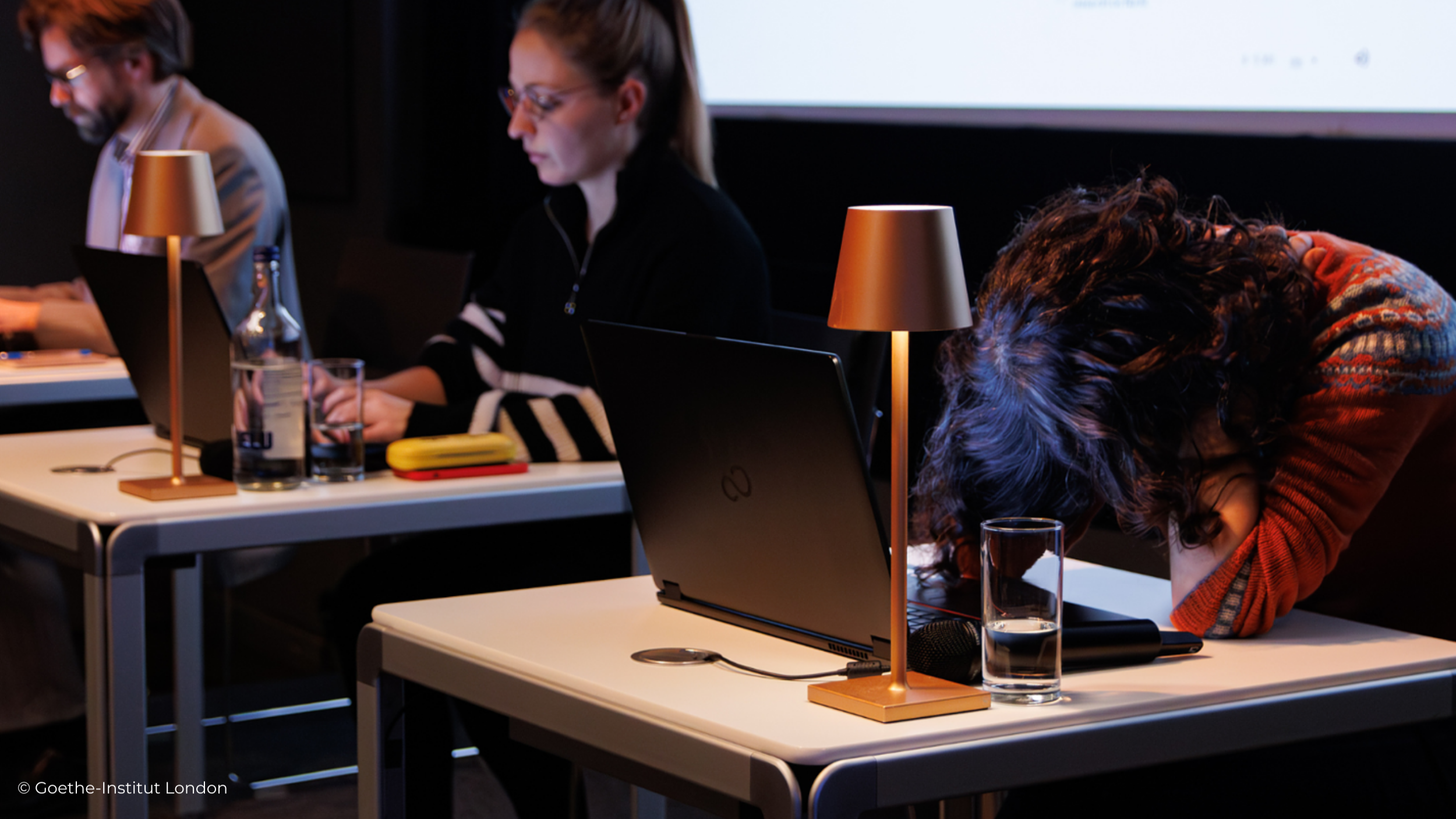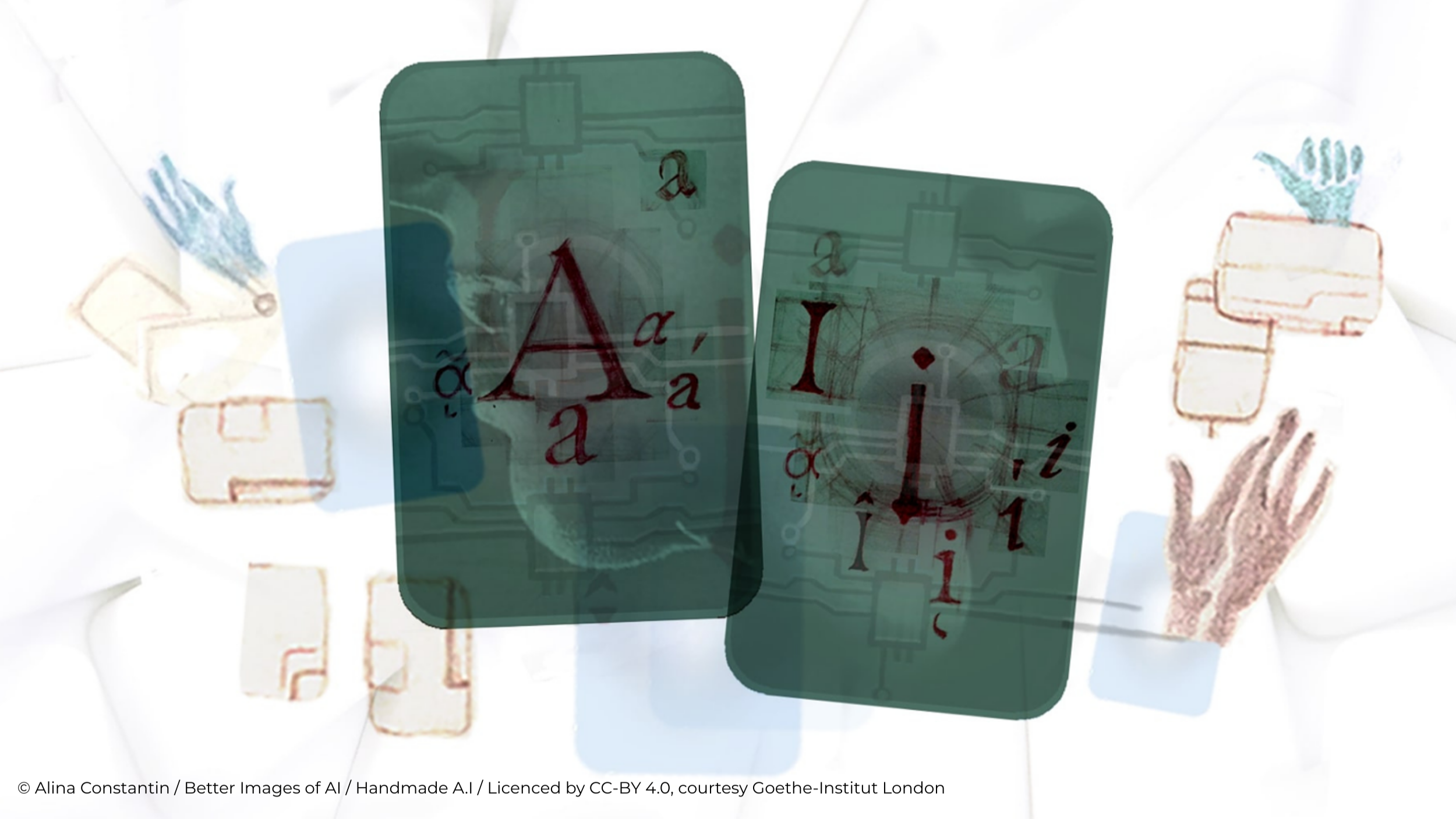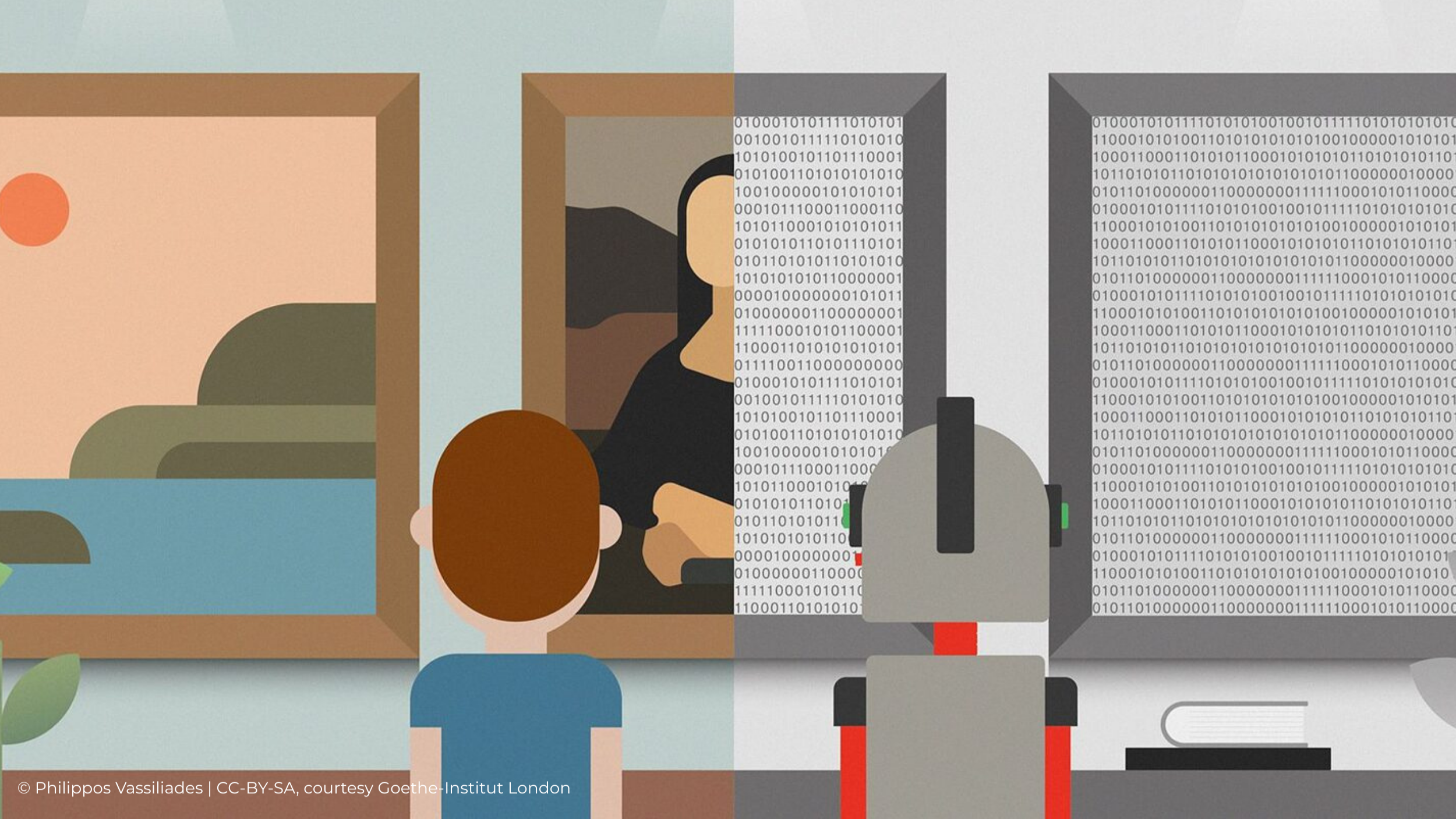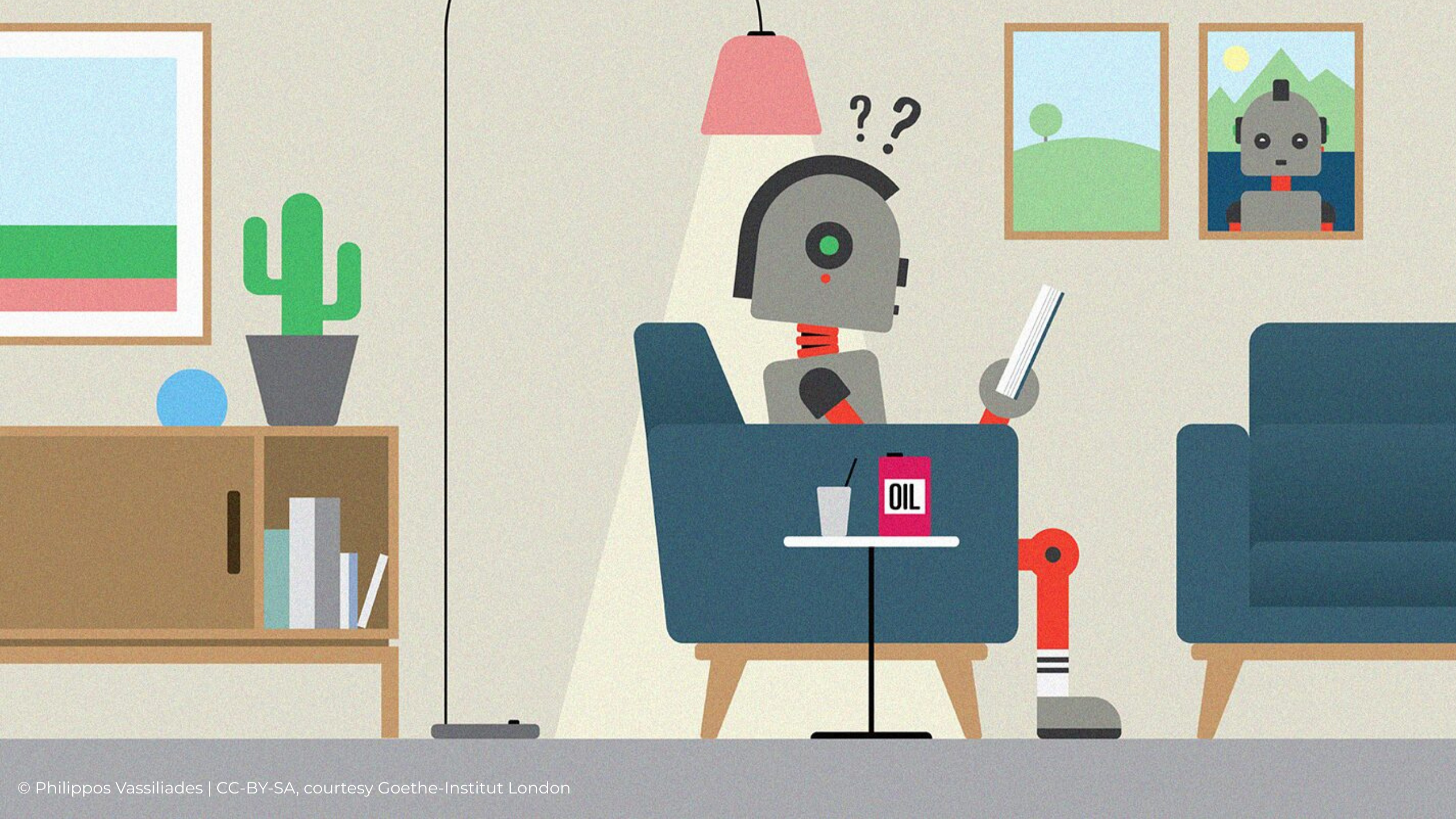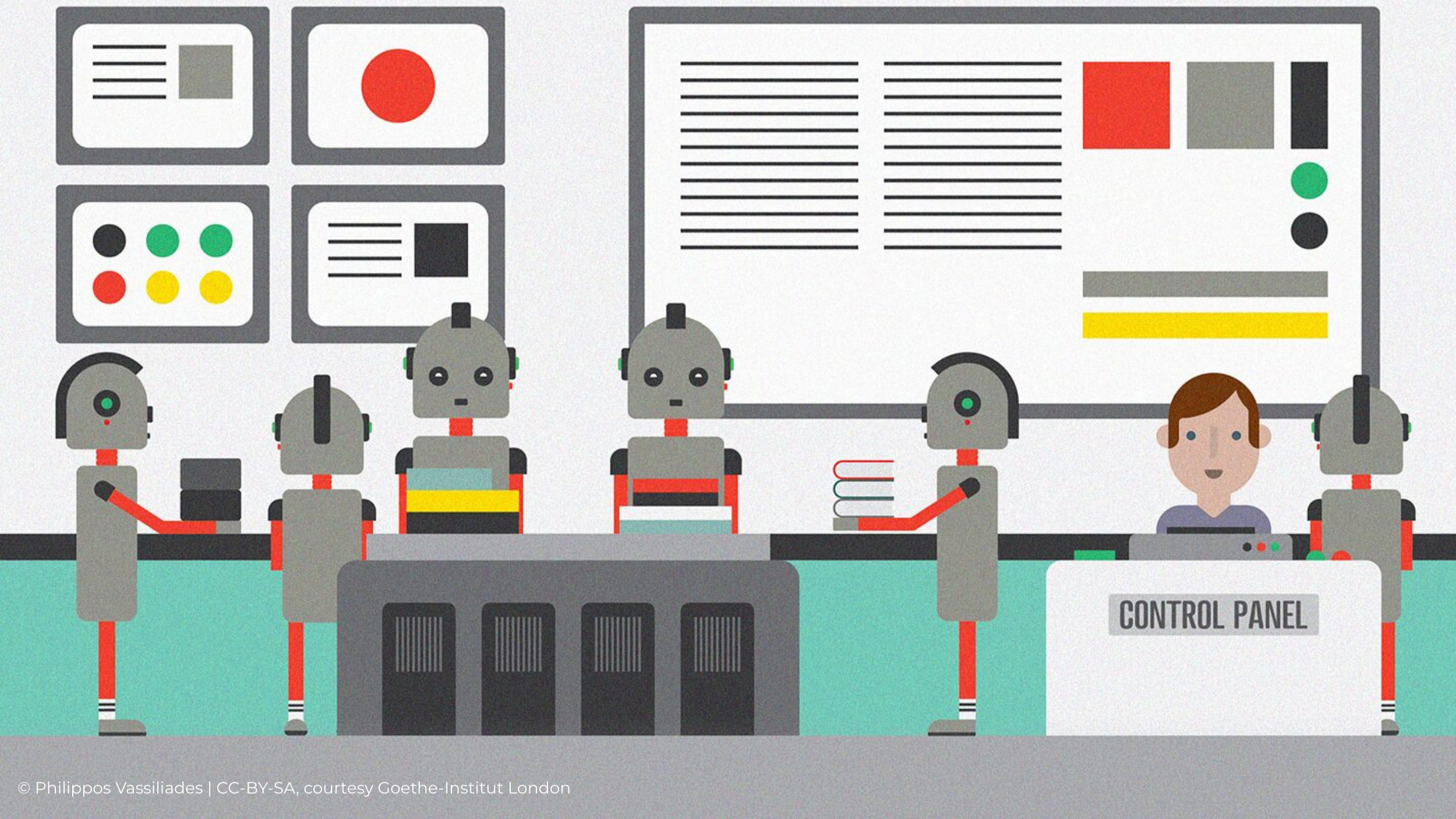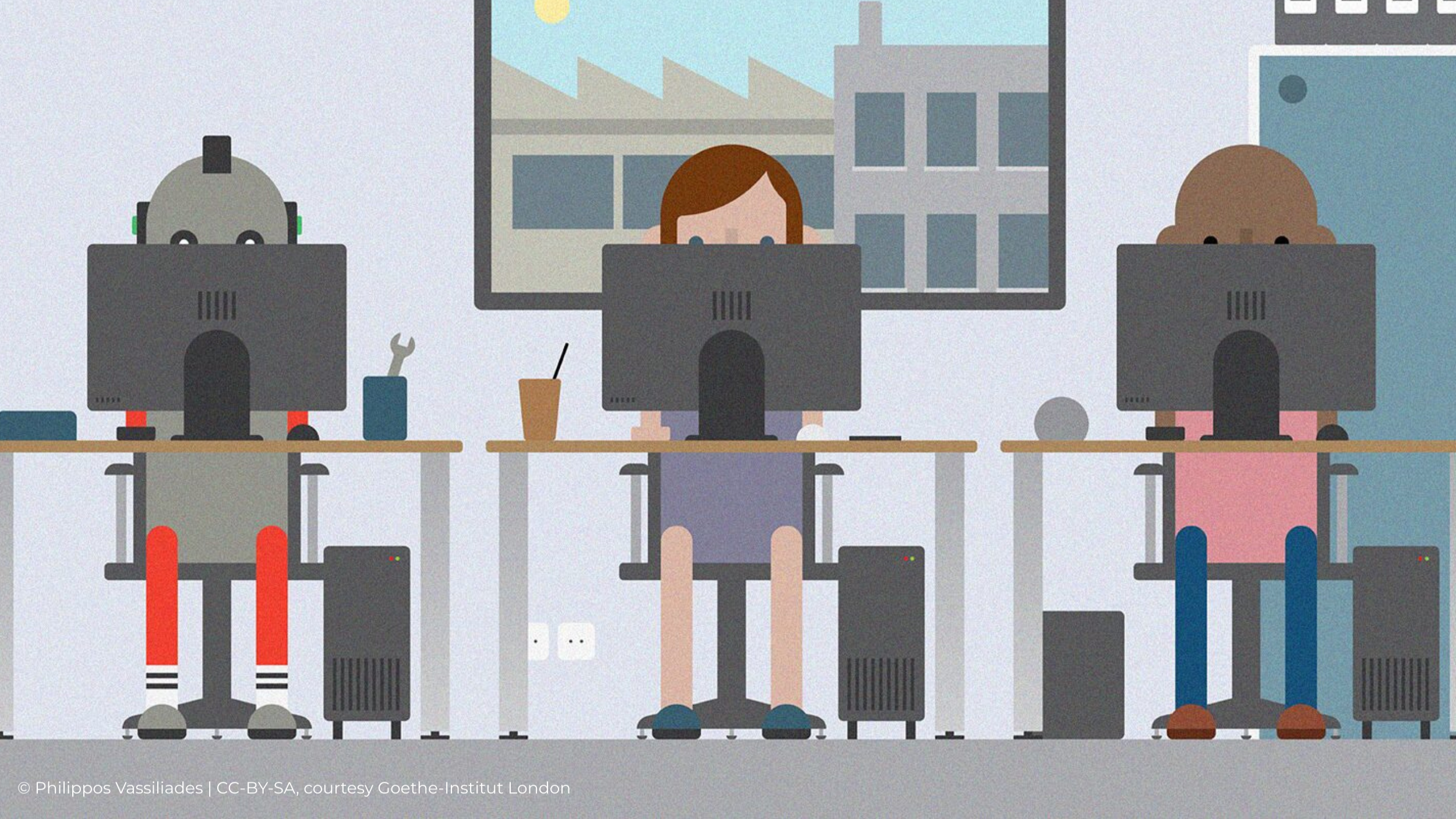AI and Literary Translation
Can Artificial Intelligence (AI) ever truly grasp the nuances of human language, or will it always reflect the biases embedded in the texts it learns from? The Goethe-Institut UK’s AI and Literary Translation programme was built on the international project, Artificially Correct, and its 2021 Hackathon. Bringing together translators, developers, and activists for 52 hours of intensive collaboration, the Hackathon resulted in the development of two inclusive AI-operated digital platforms, such as BiasByUs, a crowdsourced tool addressing gender bias in translation, and Word2Vec, a context-sensitive bias detection tool.
Following this success, the programme expanded to include a series of lectures, digital discussions, and book launches, as well as a dossier of podcast episodes and expert-written articles, offering insights into the challenges and opportunities of AI in literary translation. The AI and Literary Translation programme ultimately explored how AI can support translators whilst addressing issues such as gender and racial bias, fostering both reflection and practical solutions for a more conscious and inclusive approach to language.
About the project
Between June 2021 and December 2024, I was responsible for the Goethe-Institut UK’s website, social media channels, podcasts, digital strategies, and editorial budgets. Accordingly, I contributed significantly to the production and delivery of the Lives of Objects project. Working within the Communications team, I collaborated with internal and external stakeholders to ensure digital content and campaigns aligned with the project’s objectives and the Goethe-Institut’s editorial guidelines.
I oversaw audience-focused digital marketing strategies, including boosting paid ads via Meta Business Suite and coordinating newsletter swaps. Each year, I allocated a significant portion of the editorial budget to commissioning content to document and promote the project, including graphic designers for visual materials, videographers to record events and discussions, as well as handling all contracts and payments for commissioned editorial content. I also created and distributed media packs internally, scheduled social media posts, and built and maintained webpages via our custom CMS.
As manager, producer, and host of the Goethe-Institut’s Talking Culture podcast, I was requested to develop an episode dedicated to the Lives of Objects project. In April 2023, I published Lives of Objects: Gala Porras-Kim and James Webb on Spotify and Apple Podcasts via Stationista, managing all aspects from guest sourcing and interview preparation to audio mastering and promotional multimedia creation.
Responsibilities: Communications, budget management, strategy, and digital content production
Production Portfolio
Web content
Video content
Podcast content
In June 2023, I managed, produced, and hosted a Talking Culture podcast episode, developed to explore the Goethe-Institut's thematic pillars of AI and Literary Translation, and Art and Technology. Accordingly, I invited Professor of Political Aesthetics at Birkbeck University, Esther Leslie, and London-based artist, photographer, and educator, Louis Porter, to unpick the legacy of Walter Benjamin’s seminal 1935 essay The Work of Art in the Age of Its Mechanical Reproduction and to apply its core ideas to contemporary cultural phenomena, from machine translation to large-scale digital art exhibitions.
In October 2021, Porter conducted an experimental project, whereby he photographed Benjamin’s essay as it appeared in the 1955 Schriften publication, processed the images with Optical Character Recognition software, and converted the machine-readable text into English using Microsoft Translation Services. The project culminated in the 2022 publication of his hardcover book Walter Benjamin – The Artwork in the Age of its Technical Reproducibility.
In the pre-production stage, I thought this project would be a fitting lens to introduce Benjamin’s concept of ‘aura’ to the audience, and serve as a foreground to delve into the conversation about the role of AI and digitisation in reshaping the circulation of texts and images. The discussion further addressed pressing questions around access, authorship, and the potential of technology to break down barriers for marginalised communities to engage with the arts.
Talking Culture #16: The Work of Art in the Age of Mechanical Reproduction
Commissioned written content
(Wo)man versus machine: Reflections from an AI translation slam - Written by Ruth Martin
How AI could change how we write fact and fiction - Written by Adam Smith
The Machine Stops: Poetry's Resistance to Artificial Intelligence - Written by Will Stone
Post-Human Literary Translation? A Kafka(esque) Example - Written by Duncan Large
Can Artificial Intelligence Help Literary Translators? - Written by Roy Youdale
How Artificial Intelligence "Works" in Literary Translation - Written by Alana Cullen


